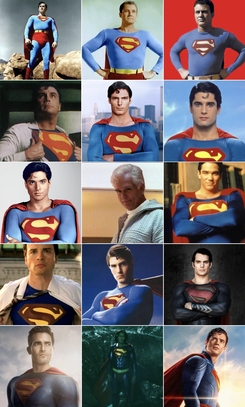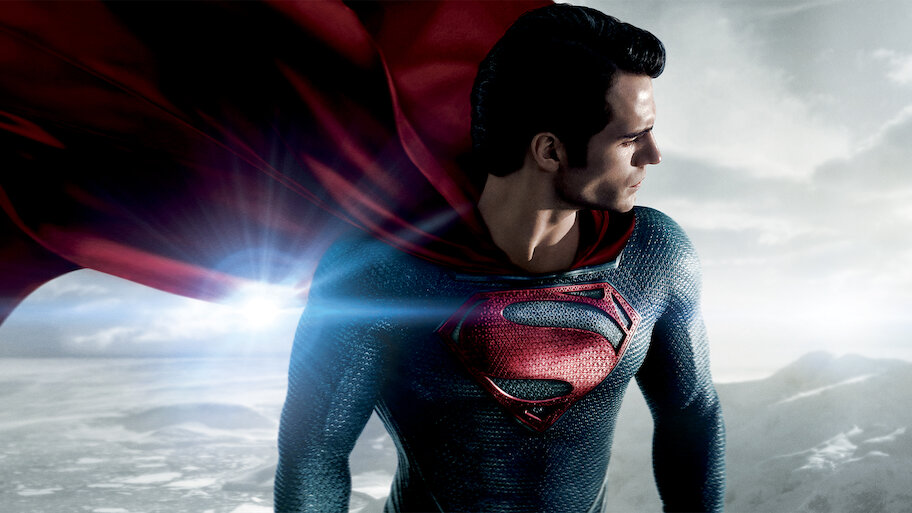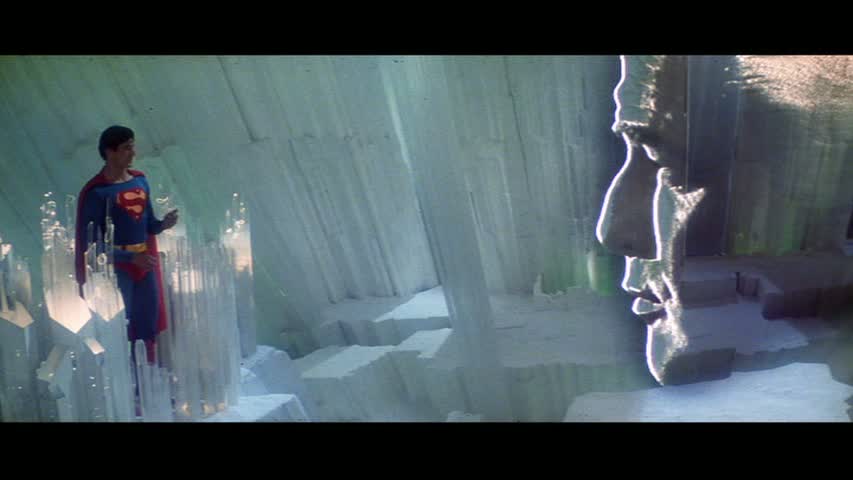In the newest movie, Superman is much less of a Christ figure and much more of an existentialist hero. Whether or not this change is welcome will depend on what kind of character we want Superman to be. I’ll explore all these questions in a three part article series, beginning with the theme of Superman as a Christ figure in past Superman films.
Do we want a Christlike Superman or a humanist Superman? The (relatively) new movie Superman (2025) depicts Superman in a way that challenges previous film portrayals of this classic superhero, such as the movies Superman (1978) and Man of Steel. Underneath the colorfully diverse cast of comic book characters, and the bright and chaotic superpowered fights, there are interesting questions to be explored in light of this film’s reinterpretation of Superman’s character, origins and philosophical significance.
In the newest movie, Superman is much less of a Christ figure and much more of an existentialist hero. Whether or not this change is welcome will depend on what kind of character we want Superman to be. I’ll explore all these questions in a three part article series, beginning with the theme of Superman as a Christ figure in past Superman films.

The Ghost of Superman Past
Should we think of Superman as a Christ figure? By “Christ figure”, I mean a person who embodies or represents some important aspect (or aspects) of Jesus Christ’s messianic character, identity and/or mission. For example, C.S. Lewis’s character Aslan in The Chronicles of Narnia is a very clear example of a Christ figure. Aslan sacrifices himself to save Edmund’s life, and then later resurrects from the dead.
So, is Superman like Aslan? Does Superman resemble Christ in any significant way? In old film portrayals of Superman, I think the answer to this question is a definite “yes”. In the newest rendition of Superman, or the movie Superman (2025), I think the answer to this question is “not really”. Again, in this film, the theme is way more humanist than it is Christian. But before we can explore this thematic subversion, and why it matters, we must travel back in time to see how older films depicted Superman as a Christ figure.
It is not hard to see the Christian elements of Superman in films like Man of Steel and especially Superman (1978). The character of Superman naturally has messianic undertones, as he is a godlike being who can fly, is nigh invulnerable, and who has all sorts of other overpowered abilities like super strength, super speed, and heat vision. He also spends his free time flying around Metropolis saving people. If that wasn’t enough, his typical origin story is that his parents sent him from the dying planet Krypton to Earth to guide humanity and give them hope. This sounds a lot like what a divine Messiah might do.

Man of Steel and the Messiah
Take Man of Steel, for example. In this movie, Clark Kent (his Kryptonian name is Kal-El) boards a Kryptonian ship in the Arctic and talks to Jor-El, his Kryptonian father, who is now just an Artificial Intelligence aboard the ship.
“The people of earth are different from us, it’s true. But ultimately I believe that’s a good thing,” Jor-El says. “They won’t necessarily make the same mistakes we did. Not if you guide them, Kal. Not if you give them hope.”
Jor-El explains that the “S” symbol, Superman’s symbol, means “hope”. He says, “Embodied within that hope is the fundamental belief in the potential of every person to be a force for good. That’s what you can bring them.”
So here, Superman is meant to give humans guidance and hope. Specifically, he’s tasked by his father to carry out this spiritual mission. Jor-El tells his son, “You’re as much a child of Earth now as you are of Krypton. You can embody the best of both worlds.”
Sound familiar? John 1:14 declares “And the Word became flesh and dwelt among us, and we have seen his glory, glory as of the only Son from the Father, full of grace and truth”. And Philippians 2:6-7 says that Jesus “though he was in the form of God, did not count equality with God a thing to be grasped, but emptied himself, by taking the form of a servant, being born in the likeness of men.”
So just as Clark is Kryptonian, yet can also identify with humanity, Jesus is fully divine and fully human.

The Savior in Superman (1978)
Superman (1978) presents Superman as even more of a Christ figure. In this movie, Jor-El tells Clark, “It is now time for you to rejoin your new world and to serve its collective humanity…They can be a great people, Kal-El, they wish to be. They only lack the light to show the way. For this reason above all, their capacity for good, I have sent them you, my only son.”
Two of Jor-El’s terms here are conspicuously Christian. First, Clark is to be a “light to show the way”. In John 8:12, Jesus says, “I am the light of the world. Whoever follows me will never walk in darkness, but will have the light of life.” Second, Jor-El sends his “only son” to be this light for humanity. This echoes John 3:16: “For God so loved the world that he gave his one and only Son, that whoever believes in him shall not perish but have eternal life.”
Back to the Future
All in all, it seems pretty clear that past portrayals of Superman in film have presented him as a Messianic, Christlike figure who is sent to Earth by his father Jor-El (a parallel of God the Father) to guide and save humanity.
But as we’ll see, this is not at all how Superman’s origins play out in Superman (2025). In this movie, Superman’s parents are a lot more like Nazis than they are like God the Father, and the mission they give Superman is malevolent, not messianic. This revision of Superman’s origin story fundamentally changes Superman’s philosophical and religious significance.








